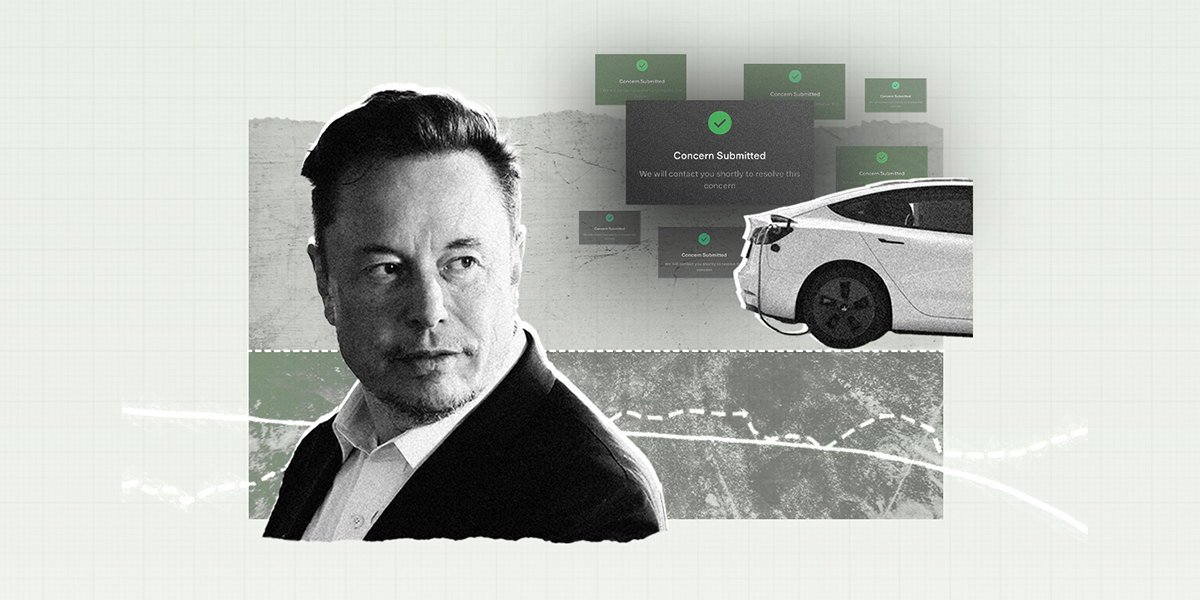From the article: “About a decade ago, Tesla rigged the dashboard readouts in its electric cars to provide “rosy” projections of how far owners can drive before needing to recharge, a source told Reuters. The automaker last year became so inundated with driving-range complaints that it created a special team to cancel owners’ service appointments.”



Lithium mining is very bad for the planet. ICEs are bad, but battery EVs are also horrible.
The solution is trains
For most people, including most city dwellers, trains are indeed the correct solution.
US rural settlements were built on train lines before cars destroyed that.
For most long range travel, trains are the solution.
And bikes or PEVs for short range travel.
PEVs are kind of a trap though.
ICE cars are not just problematic because of their emissions, they do much worse things with their infrastructure requirements. Roads and parking that can support everyone driving their car alone everywhere results in sprawl. That makes everyone not in a car have to get in a car as well, and also increases infrastructure costs for other services, since they have to service a much larger area.
Cars have their place, but in an ideal world, a regular family regardless of where they live shouldn’t need one. It’s not a personal mobility solution. Taxies and stuff make sense, everyone sitting in their own car doesn’t.
And this is not even counting that car accidents are a leading cause of fatalities because we give a licence to everyone with a pulse.
PEVs (personal electric vehicles) aren’t cars. They’re ebikes and escooters and EUCs and things like that. Things you can carry up a flight of stairs or onto a train. They are most at home in bicycle infrastructure.
I stand corrected.
While I was living in a city with an expansive but terrible quality public transit system, I owned a foldable electric bike. I used it to commute, I kept it under my office desk and charged it off the office mains while working. It had like 30 kilometres of range, which I used like 12 of, so I even had some distance to play with and visit a friend after work.
If it was raining, I could get on the bus with it. It was cool as hell.
I moved since, now I commute by tram.
If trains were less expensive or more efficient, they wouldn’t have died as they did in the US. They’re still more go-to here, but are getting far too expensive and less reliable (I live in the Netherlands). Their competition seems to be more the airplane than the car, and prices reflect that. I’m spending less by traveling by EV, paying for parking outside the city and taking light rail/trams into the city center - even though the train station is literally a 5-7 minute walk from my home or to my office. It’s like 30% more expensive, and that matters.
In Europe, it seems the folks who run the Train networks think we can’t live without them and have no other choices. Good luck with that.
What happens to lithium after it’s mined? What happens to oil after it’s mined?
There’s no comparing how much worse ICEs are compared to EVs.
The problem is no what happens to lithium afterwards. The problem is what the environmental cost of getting the lithium out of the earth.
https://www.theguardian.com/commentisfree/2021/jun/14/electric-cost-lithium-mining-decarbonasation-salt-flats-chile
But once it’s out, it’s out. It can then be recycled and reused “forever”.
You extract oil once and burn it once; then that carbon is stuck in the atmosphere “forever”. Now you have to extract more oil and do it all over again.
That’s the big difference, EVs don’t consume lithium; they borrow it.
That’s not how recycling works.
Most recycling today is PR anyway. Recycled stuff gets dumped into some poor third world country.
lithium and cobalt are highly recyclable. The problem is not recycling them the problem is getting all the recyclable batteries into the circular manufacturing process.
There’s at least one company recycling EV batteries already, and that’s even with the small amount of end-of-life batteries out there (most are still on the road): https://arstechnica.com/cars/2023/03/heres-what-redwood-learned-in-its-first-year-of-ev-battery-recycling/
That’s definitely the case for low/zero value materials like plastics. But the materials in EV batteries are way too valuable to just throw away.